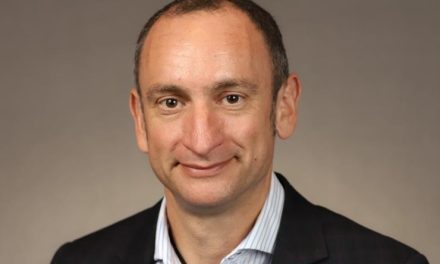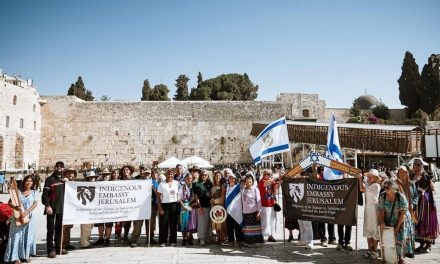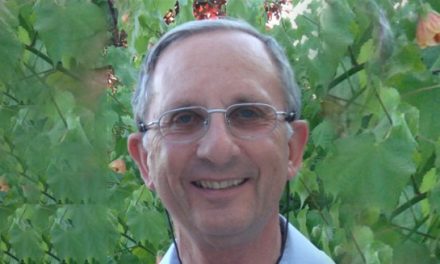Media release: Holocaust Centre of NZ…
Compassion for Suffering and Destruction
The Holocaust Centre of New Zealand unequivocally acknowledges the profound human cost borne by civilians during the Gaza conflict.
On October 7, 2023, Israeli communities suffered appalling violence—including the massacre of civilians and kidnapping of hostages. Some 1,200 people, mostly Israeli civilians, were killed on that day alone. Since then, Israelis have suffered missile attacks throughout the country, displacement, deaths, and have been forced into a multi-front war not of their choosing, to confront a realistic existential threat.
Since that time, civilian Palestinians in Gaza have endured high numbers of deaths, extensive devastation, destruction of homes, infrastructure, health facilities, schools, and cultural sites; widespread displacement; and an acute humanitarian crisis.
Historical memory compels us to bear witness to human suffering, wherever it occurs. We express heartfelt sorrow for all civilian lives lost and destroyed: Israeli, Palestinian, and all others caught in this tragedy.
Why the Holocaust Centre of New Zealand Does Not Call the Gaza Conflict a Genocide
Central to the legal definition of genocide is the specific intent to destroy, in whole or in part, a protected group. While there is vigorous debate among international scholars and human rights organisations—including some Israeli-based groups like B’Tselem and Physicians for Human Rights Israel—about whether the situation in Gaza meets this threshold, Yad Vashem and many legal authorities reject that characterisation. They affirm that while suffering is widespread, such intent has not been credibly demonstrated.
The Holocaust Centre of New Zealand aligns with this cautious and historically grounded perspective. We believe it is irresponsible to apply the term “genocide” without unequivocal evidence of intent, especially when doing so may inadvertently dilute the term’s meaning and fuel polarisation, as well as undermine cognate crimes in international law such as ‘crimes against humanity’ and ‘war crimes’.
Historical Accuracy and the Misuse of Holocaust Memory
The Holocaust is a historically unique atrocity, characterised by its ideologically driven, industrialised system of genocide. Equating the Holocaust with Israel’s military operations in Gaza introduces false moral equivalence and distorts both history and public discourse.
By applying Holocaust language to describe the conflict in Gaza, the Holocaust is trivialised—and opportunities for meaningful moral reflection are lost.
Choosing the Holocaust as a point of reference for interpreting conflict in the Middle East, when their respective characteristics are so clearly different and so many more relevant contemporary examples apply, can only be justified by the Jewish identity of Holocaust victims, weaponised to criticise Israel as a majority-Jewish state. This disrespects, appropriates and abuses innocent victims, who cannot speak for themselves.
That is not to say that lessons cannot be drawn from the Holocaust where relevant and fact-driven. In particular, the history of the Holocaust teaches us the dangers of dehumanisation: we are very concerned by dehumanising language employed in the Israel-Hamas conflict, and strongly advocate never to let conflict blind us to our shared humanity.
What the Holocaust Centre of New Zealand Advocates
The Holocaust Centre reaffirms that Holocaust memory carries an enduring moral responsibility: to educate, to remember, to bear witness, and to oppose antisemitism, discrimination and apathy. While we condemn language that misuses Holocaust memory or promotes false equivalence, we acknowledge the profound suffering inflicted directly and indirectly on civilians caught in the conflict between Israel and Hamas.
In July 2025, the Holocaust Centre signed the Harmony Accord between the Muslim and Jewish communities of Aotearoa New Zealand—a commitment to dialogue, mutual respect, and unity. This Accord recognises that while conflict may divide communities overseas, we must resist importing ancient hatreds here and ensure that antisemitism, Islamophobia, and all forms of bigotry have no place in our society.
The Holocaust Centre continues to call for a just, lasting, and sustainable peace between Israelis and Palestinians—one that includes the cessation of hostilities, the safe return of all Israeli hostages and the disarmament of Hamas.
Guided by the lessons of the Holocaust, the Holocaust Centre advocates for moral leadership, dialogue over division, and the courage to choose reconciliation over hatred—both in the Middle East and in Aotearoa New Zealand.






